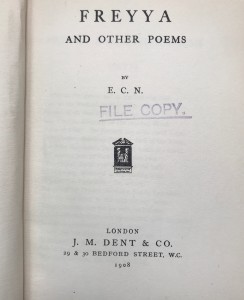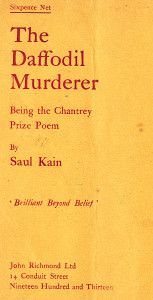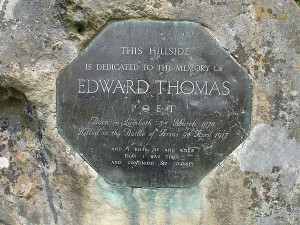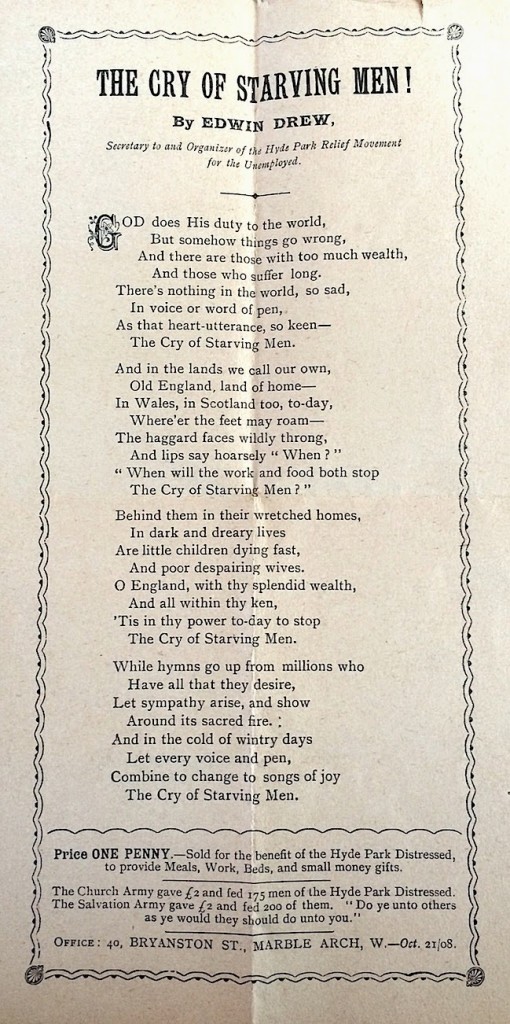 This book was among thousands of books, all publisher’s file copies, bought from the publisher Orion, who in time had taken over Gollancz, Witherby and Dent. Dent was the publisher of this slimmish volume of poems Freyya and other Poems by E.C.N. (London 1908, 105 pp.) There is no knowing who E.C.N. was, possibly a man as there are several poems addressed to women (although that is by no means a clincher) and a gifted blank versifier fond of epic and portentous themes and alliteration ( ‘Blessing and blest, to the high heroes home..’) He, or she, owed something to Swinburne, possibly Milton and some of the poets of the time who were fond of grand sweeping historical themes (Newbolt, Watson, Stephen Phillips.)
This book was among thousands of books, all publisher’s file copies, bought from the publisher Orion, who in time had taken over Gollancz, Witherby and Dent. Dent was the publisher of this slimmish volume of poems Freyya and other Poems by E.C.N. (London 1908, 105 pp.) There is no knowing who E.C.N. was, possibly a man as there are several poems addressed to women (although that is by no means a clincher) and a gifted blank versifier fond of epic and portentous themes and alliteration ( ‘Blessing and blest, to the high heroes home..’) He, or she, owed something to Swinburne, possibly Milton and some of the poets of the time who were fond of grand sweeping historical themes (Newbolt, Watson, Stephen Phillips.)
Worldcat, Copac and Google give no hint as to the identity of E.C.N. The book itself is quite rare (as often with file copies.) Somewhere in the haul were very large publisher’s ledgers which can often reveal an author’s true name – as the publisher might have to send money at some point.
In the long title poem Freyya the poet makes much use of Norse mythology with mention of Asgard, Odur, Odin, Frigga and Vana – exploring fantastic realms that later inspired Marvel comics and Hollywood. There is also a poem on the Battle of Marathon – ‘the greatest deed the world has ever known..’ The opening lines of Freyya will give a flavour of ENC’s talents— if around today he could be working on a Python epic or Game of Thrones…
Fair as the dawn, fair as the opening rose,
Fair as the flash of sunlight after rain,
Fairest of all that earth of fairest holds
Was Freyya, daughter of the dancing Wind,

 Found – a rather battered copy of Siegfried Sassoon’s early book The Daffodil Murderer (1913) published under the pseudonym ‘Saul Kain.’ In decent condition it has auction records like this from Bloomsbury Book Auctions in April 2009:
Found – a rather battered copy of Siegfried Sassoon’s early book The Daffodil Murderer (1913) published under the pseudonym ‘Saul Kain.’ In decent condition it has auction records like this from Bloomsbury Book Auctions in April 2009:


